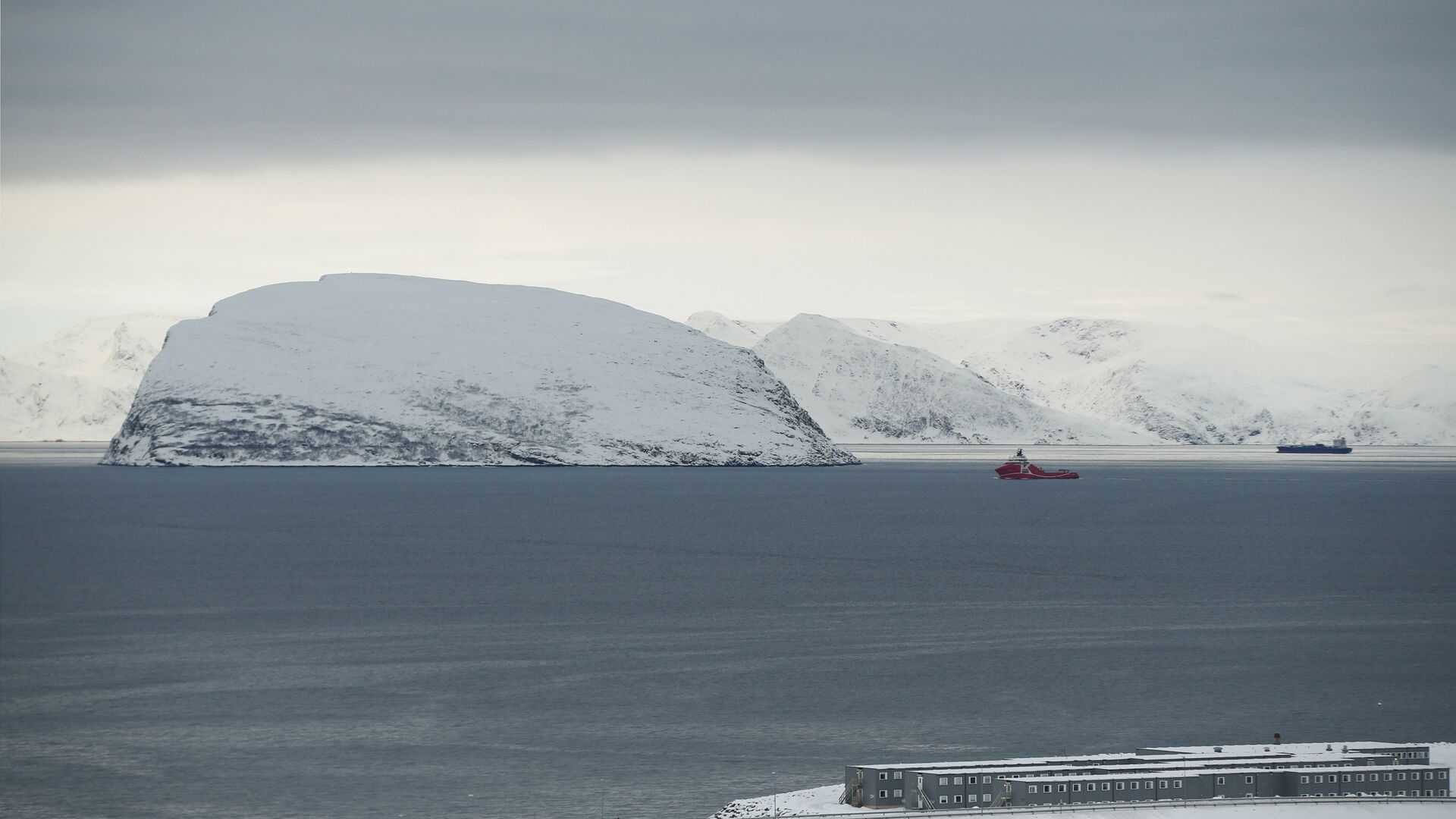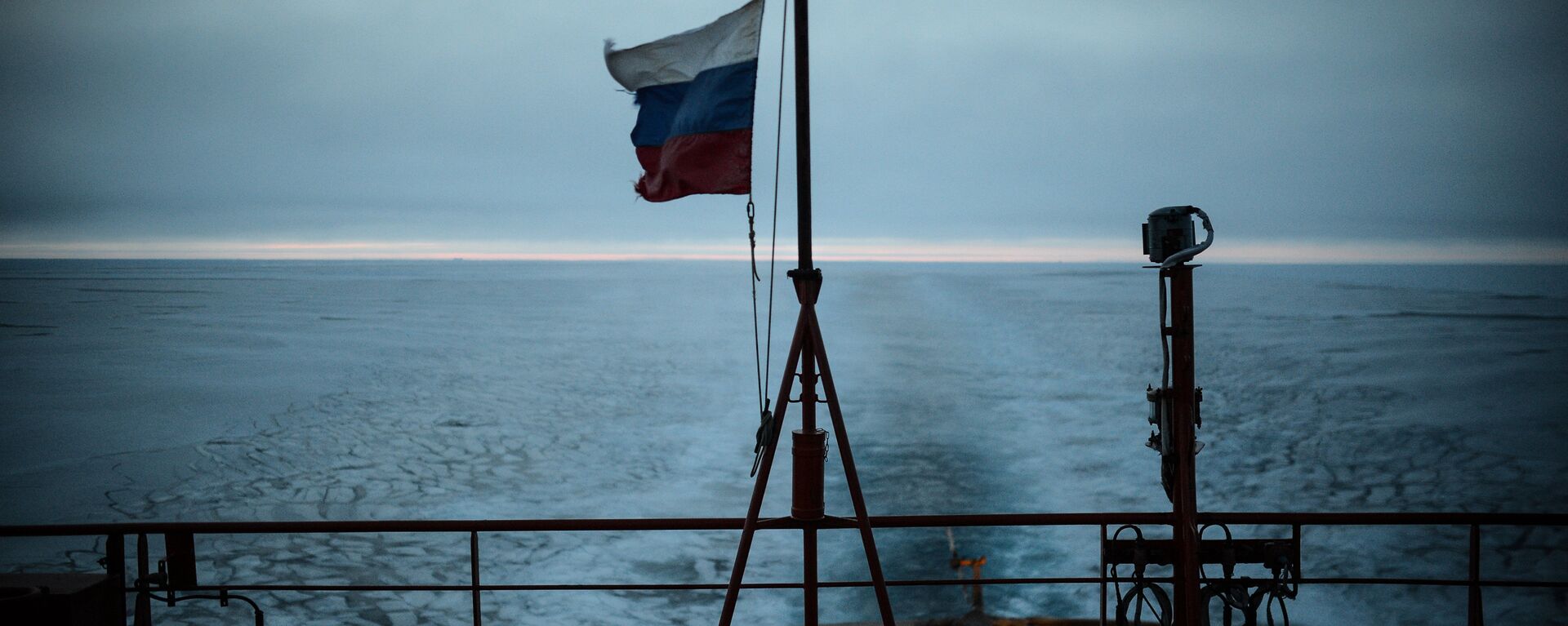https://sputnikglobe.com/20240427/russia-creates-worlds-first-arctic-space-observation-system---roscosmos-1118149304.html
Russia Creates World's First Arctic Space Observation System - Roscosmos
Russia Creates World's First Arctic Space Observation System - Roscosmos
Sputnik International
The system consists of two hydrometeorological satellites called Arktika-M, according to Russia's state space agency.
2024-04-27T17:53+0000
2024-04-27T17:53+0000
2024-04-27T17:53+0000
beyond politics
arctic
roscosmos
russia
satellite
observation
https://cdn1.img.sputnikglobe.com/img/105155/38/1051553869_0:268:5089:3131_1920x0_80_0_0_18f34b0a72c6e2f39a33e6de0075baf2.jpg
Russia has created the world's first "hydrometeorological space system that provides continuous monitoring of the Earth's Arctic region and adjacent territories," Russian state space agency Roscosmos has said.It comes after successful tests were carried out on the Arktika-M No. 2 spacecraft, which, alongside Arktika-M No. 1, will provide round-the-clock monitoring of the Earth's surface and cloud cover in the Arctic region and adjacent territories, as well as continuous and reliable exchange of meteorological information.In addition, their equipment is used to determine the location of ships, aircraft, and other mobile objects in distress as part of the international satellite search and rescue system "COSPAS-SARSAT."It is noted that as a result of the review, the state commission made a decision "to complete the tests with the acceptance into operation of the spacecraft Arktika-M No. 2 and to use the orbital grouping, consisting of spacecraft Arktika-M No. 1 and No. 2, for its intended purpose."The first satellite Arktika-M was launched into orbit in February 2021 and the second in December 2023.
https://sputnikglobe.com/20240308/first-methanol-fueled-arctic-ships-may-appear-in-russia-by-2030-1117210946.html
arctic
russia
Sputnik International
feedback@sputniknews.com
+74956456601
MIA „Rossiya Segodnya“
2024
Sputnik International
feedback@sputniknews.com
+74956456601
MIA „Rossiya Segodnya“
News
en_EN
Sputnik International
feedback@sputniknews.com
+74956456601
MIA „Rossiya Segodnya“
Sputnik International
feedback@sputniknews.com
+74956456601
MIA „Rossiya Segodnya“
roscosmos, arctic, satellite, arctic observation system
roscosmos, arctic, satellite, arctic observation system
Russia Creates World's First Arctic Space Observation System - Roscosmos
The system consists of two hydrometeorological satellites called Arktika-M, according to Moscow's state space agency.
Russia has created the world's first "hydrometeorological space system that provides continuous monitoring of the Earth's
Arctic region and adjacent territories," Russian state space agency Roscosmos has said.
It comes after successful tests were carried out on the Arktika-M No. 2 spacecraft, which, alongside Arktika-M No. 1, will provide round-the-clock monitoring of the Earth's surface and cloud cover in the Arctic region and adjacent territories, as well as continuous and reliable exchange of meteorological information.
In addition, their equipment is used to determine the location of ships, aircraft, and other mobile objects in distress as part of the international satellite search and rescue system "COSPAS-SARSAT."
"On April 27, 2024, the state commission for flight tests of space complexes of socio-economic, scientific, and commercial purpose reviewed the results of flight tests of the highly elliptical hydrometeorological space system Arktika-M with the spacecraft (SC) Arktika-M No. 2," Roscosmos' press service said.
It is noted that as a result of the review, the state commission made a decision "to complete the tests with the acceptance into operation of the spacecraft Arktika-M No. 2 and to use the orbital grouping, consisting of spacecraft Arktika-M No. 1 and No. 2, for its intended purpose."
The first satellite Arktika-M was launched into orbit in February 2021 and the second in December 2023.



